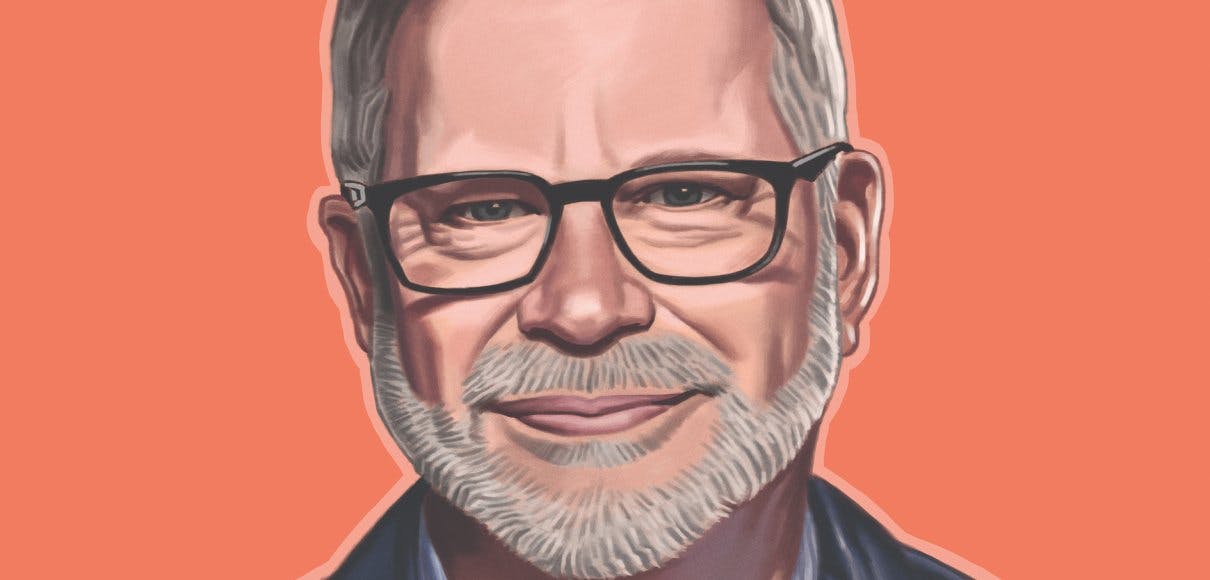It takes 15 years to be an overnight success, the saying goes. For Steve Bell, founder of Bellmont Cabinet Co., it took a little longer, and the road to success was marked by setbacks and moments that tested his faith.

At 28, its founder Steve Bell was doing tenant improvement work when he got a call from his attorney, who told him to pick up a copy of that day’s Seattle Post-Intelligencer. Two of the men he was contracting for had been arrested in an FBI sting operation for possession of illegal substances, drug smuggling, and connections to organized crime. They owed Steve and his partners more than $100,000, which Steve, in turn, owed to suppliers, subcontractors, and employees.
“We just lost it all,” he said.
Bell remembers going home to his children and telling his pregnant wife he wasn’t sure how they would make the house payment, how they’d eat that month. He remembers Carolyn putting her arms around him and saying, “I believe in you, and God will provide.”
Although he wasn’t sure how, Bell was determined to pay back what he owed. His attorneys advised against it, warning him that within a month he’d have dozens of lawsuits filed against him and bill collectors harassing his family.
“I said, ‘Maybe you’re right. Maybe that is what I’ll have to do, but first I’m gonna try it my way.’”
Bell wrote a letter to every person he owed money to explaining what had happened. He then followed up with a phone call and told them all he had to offer was his good name, but if they could trust him, he would pay them back every dime, with interest.
“We’re not building this for our own glory and our own financial empire. We’re building this for the kingdom.” — Steven Bell
At the time, Bell had been learning about a novelty in the world of manufacturing and woodworking — frameless cabinets. The design looked simple and efficient, and in 1986 he switched his business model completely and began building frameless cabinets. It took Bell six and a half years, but he paid off every bill.
For Bell’s insistence on integrity and for his significant contributions to his community, SPU awarded him the Frank Hass Integrity in Business Award this year. The award is given to a businessperson who exhibits characteristics similar to Haas, a leader who sought to integrate faith into every aspect of his life and who was instrumental in the founding of the Center for Faithful Business at Seattle Pacific University.
Al Erisman, emeritus executive-in-residence at SPU, knew Haas and said Bell represents everything both Haas and the School of Business, Government, and Economics strive to be.
The Bellmont Family Support Fund provides employees with financial and ministerial help during times of crisis.
“Steve is a businessperson I greatly admire,” Erisman said, “one who stands for integrity.”
Erisman particularly admires how each time Bell was hit with an obstacle, Bell recalibrated his business.
From the mid-’80s to the early 2000s, Bellmont Cabinet Co. grew from 20 employees to more than 200. They were hit hard by the Great Recession, but they recovered and slowly grew 10 times over. Early in the COVID-19 pandemic, the business was deemed essential, enabling production to continue, but Bell and his team had to make adjustments — changing vendors and sourcing, pulling out of certain markets, and trying to remain flexible with a changing workforce.
Though he jokes that “hope is not a strategy,” Bell takes confidence from the fact that even as they continue to struggle with supply chain disruptions and overseas competition, the company runs in excess of $100 million a year and is on the verge of releasing a new product perfectly suited to a time when customers want high-quality work at a lower price point.
His sons, Casey Bell ’02 and Tyler Bell ’04, now run the business as CEO of operations and CEO of sales and marketing, respectively, but Steve is still active in the family’s foundation, which his daughter, Loreen, manages.
Bellmont has been a family business from the beginning. Bell was working for his father-in-law’s construction business when he and Carolyn were looking for a way for Carolyn to stay home after the birth of their daughter. With great determination and little more than ninth-grade woodshop experience, Bell began working evenings and weekends in a garage converted to a woodshop, building cabinets for the homes his father-in-law’s company was building.
Bell was a quick learner in the trade, but he says it didn’t need to be cabinets; it could have been anything. It was the art of business he loved. Yet, even for Bell, it has never been about business alone.
“We’re not building this for our own glory and our own financial empire,” he said of his family’s life’s work. “We’re building this for the kingdom.”
For the Bells, kingdom work includes tithing on their annual pre-tax net income and putting it into the family’s foundation, which focuses on humanitarian relief, education, and churches or mission work. Bellmont Cabinet Co. also includes unusual perks for a family-run business — the Bellmont Family Support Fund, which employees can draw on in times of crisis, and on-site ministry from chaplains.
Whether for profit or for philanthropy, SPU’s School of Business, Government, and Education Dean Ross Stewart notes one consistency in Bell’s career — a desire to see business, as Bell would say, as “a conduit of God’s grace.”
Even as Bell steps away from the day-to-day running of his business, he continues to carry this grace into the community, working with local nonprofits and offering pro bono mentoring for small businesses.
“We aren’t just put here on earth to live and save souls and then get a fire escape and get out of here,” he says. “We’re living in God’s kingdom right now, and everything we do should be done with the intention of making the world a better place.”
Illustration by Scott Anderson




